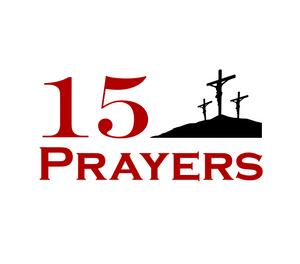
Book XIV
Of the punishment and results of man’s first sin, and of the propagation of man without lust.
Chapter 1
That the disobedience of the first man would have plunged all men into the endless misery of the second death, had not the grace of God rescued many.
Chapter 2
Of carnal life, which is to be understood not only of living in bodily indulgence, but also of
living in the vices of the inner man.Chapter 3
That sin is caused not by the flesh, but by the soul, and that the corruption contracted from
sin is not sin, but sin’s punishment.Chapter 4
What it is to live according to man, and what to live according to God.
Chapter 5
That the opinion of the Platonists regarding the nature of body and soul is not so censurable as
that of the Manicheans, but that even it is objectionable, because it ascribes the origin of vices to the nature of the flesh.Chapter 6
Of the character of the human will which makes the affections of the soul right or wrong.
Chapter 7
That the words love and regard (amor and dilectio) are in Scripture used indifferently of
good and evil affection.Chapter 8
Of the three perturbations, which the Stoics admitted in the soul of the wise man to the exclusion of grief or sadness, which the manly mind ought not to experience.
Chapter 9
Of the perturbations of the soul which appear as right affections in the life of the righteous.
Chapter 10
Whether it is to be believed that our first parents in Paradise, before they sinned, were free
from all perturbation.Chapter 11
Of the fall of the first man, in whom nature was created good, and can be restored only by
its Author.Chapter 12
Of the nature of man’s first sin.
Chapter 13
That in Adam’s sin an evil will preceded the evil act.
Chapter 14
Of the pride in the sin, which was worse than the sin itself.
Chapter 15
Of the justice of the punishment with which our first parents were visited for their
disobedience.Chapter 16
Of the evil of lust—a word which, though applicable to many vices, is specially appropriated to sexual uncleanness.
Chapter 17
Of the nakedness of our first parents, which they saw after their base and shameful sin.
Chapter 18
Of the shame which attends all sexual intercourse.
Chapter 19
That it is now necessary, as it was not before man sinned, to bridle anger and lust by the
restraining influence of wisdom.Chapter 20
Of the foolish beastliness of the Cynics.
Chapter 21
That man’s transgression did not annul the blessing of fecundity pronounced upon man
before he sinned, but infected it with the disease of lust.Chapter 22
Of the conjugal union as it was originally instituted and blessed by God.
Chapter 23
Whether generation should have taken place even in Paradise had man not sinned, or whether
there should have been any contention there between chastity and lust.Chapter 24
That if men had remained innocent and obedient in Paradise, the generative organs should
have been in subjection to the will as the other members are.Chapter 25
Of true blessedness, which this present life cannot enjoy.
Chapter 26
That we are to believe that in Paradise our first parents begat offspring without blushing.
Chapter 27
Of the angels and men who sinned, and that their wickedness did not disturb the order of
God’s providence.Chapter 28
Of the nature of the two cities, the earthly and the heavenly.

